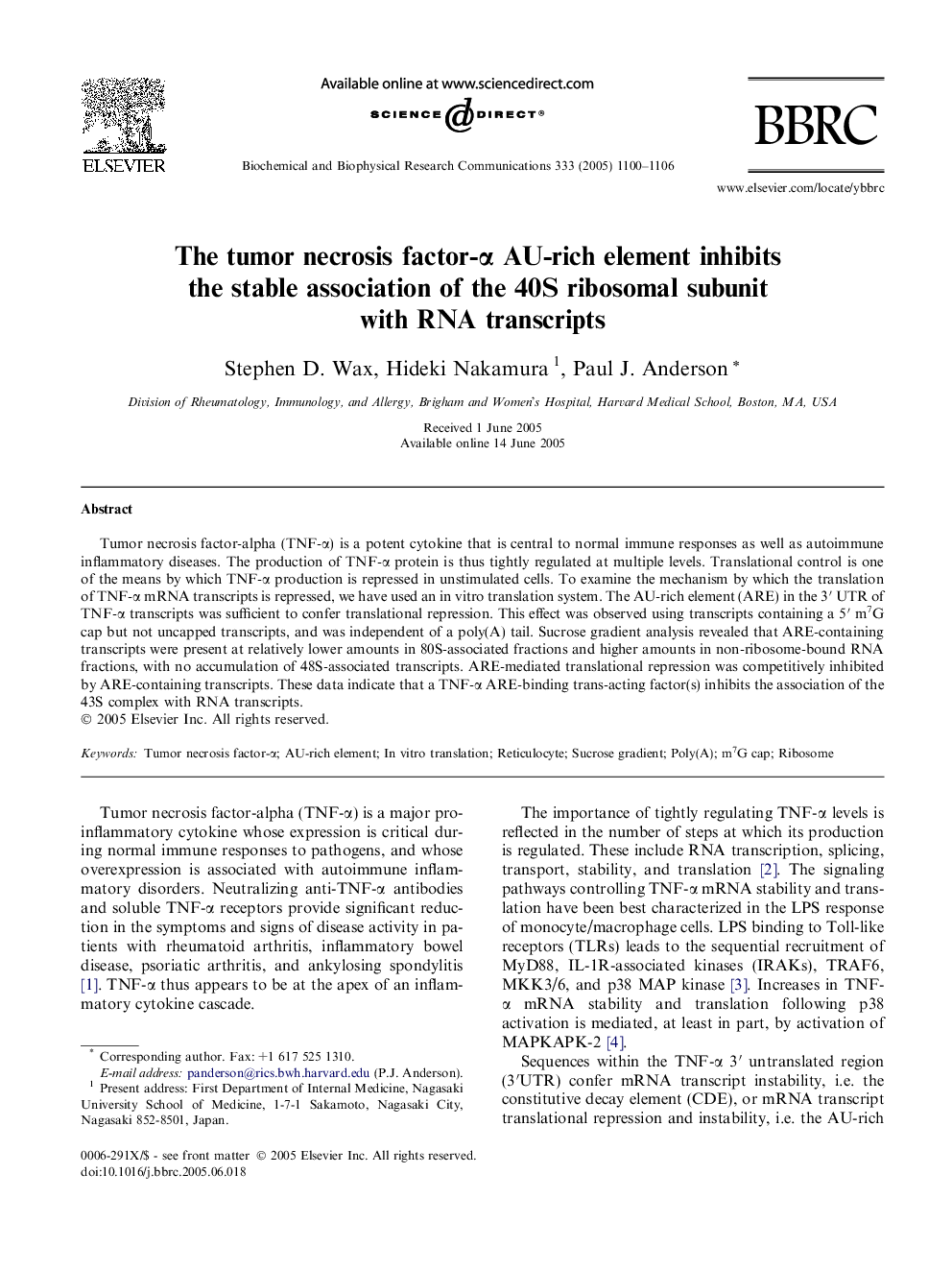| Article ID | Journal | Published Year | Pages | File Type |
|---|---|---|---|---|
| 10768550 | Biochemical and Biophysical Research Communications | 2005 | 7 Pages |
Abstract
Tumor necrosis factor-alpha (TNF-α) is a potent cytokine that is central to normal immune responses as well as autoimmune inflammatory diseases. The production of TNF-α protein is thus tightly regulated at multiple levels. Translational control is one of the means by which TNF-α production is repressed in unstimulated cells. To examine the mechanism by which the translation of TNF-α mRNA transcripts is repressed, we have used an in vitro translation system. The AU-rich element (ARE) in the 3ⲠUTR of TNF-α transcripts was sufficient to confer translational repression. This effect was observed using transcripts containing a 5Ⲡm7G cap but not uncapped transcripts, and was independent of a poly(A) tail. Sucrose gradient analysis revealed that ARE-containing transcripts were present at relatively lower amounts in 80S-associated fractions and higher amounts in non-ribosome-bound RNA fractions, with no accumulation of 48S-associated transcripts. ARE-mediated translational repression was competitively inhibited by ARE-containing transcripts. These data indicate that a TNF-α ARE-binding trans-acting factor(s) inhibits the association of the 43S complex with RNA transcripts.
Keywords
Related Topics
Life Sciences
Biochemistry, Genetics and Molecular Biology
Biochemistry
Authors
Stephen D. Wax, Hideki Nakamura, Paul J. Anderson,
